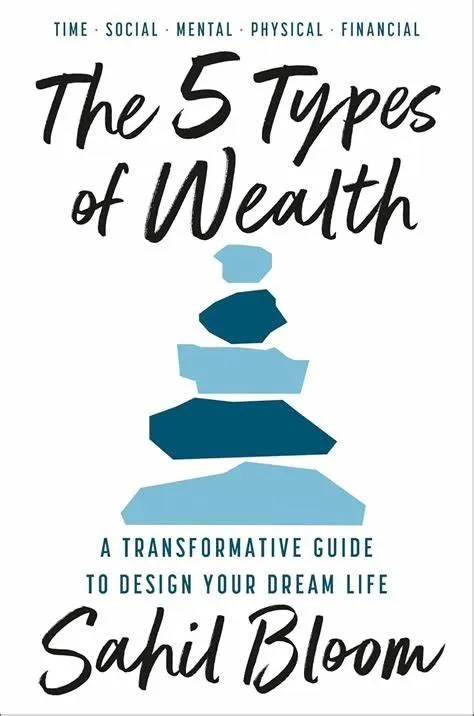Rethinking wealth: Insights from Sahil Bloom's 'The 5 Types of Wealth'

The 5 Types of Wealth - Sahil Bloom
Image: Supplied
When I picked up The 5 Types of Wealth by Sahil Bloom, I couldn’t shake the feeling that the timing was deliberate, almost like the universe had nudged me toward it.
I had just finished Mel Robbins’ The Let Them Theory, which taught me to let go of what I can’t control. Bloom’s book felt like the natural next step, shifting my focus from release to building something meaningful.
At first, I expected this to be just another book about financial success. Instead, Bloom redefined wealth in a way that made me rethink my entire approach to life.
He breaks it down into five types—financial, time, physical, mental, and relational—arguing that true wealth isn’t just about money; it’s about freedom, purpose, and the quality of our daily experiences.
Time Wealth: The Wake-Up Call
Bloom’s chapter on time wealth hit me hard. For years, I treated time as if it were unlimited, saying yes to every social invite, every work request, and every “urgent” task. I thought being busy meant being productive, but in reality, I was just draining myself.
His reminder that time is the ultimate currency made me rethink how I spend it. Now, before committing to something, I ask myself: Does this align with my values, or am I just filling time? More often than not, the answer surprises me.
How I’m Applying This:
- I have started protecting my time the way I protect my money.
- I say no more often, without guilt.
- I prioritise quality time with people who truly matter, rather than spreading myself too thin.
Financial Wealth: Freedom Over Funds
Bloom’s perspective on financial wealth reminded me of Morgan Housel’s The Psychology of Money. He explains that money should be a tool for freedom, not just accumulation.
It is not about how much you earn, but how much control you have over your choices.
I realised that financial freedom means different things to different people. For me, it is about stability, avoiding lifestyle inflation, and making intentional choices.
That meant re-evaluating habits, like my tendency to justify overpriced lattes as a “small treat,” and instead putting that money toward long-term goals that actually bring me joy.
How I’m Applying This:
- I track my spending and cut out mindless purchases.
- I focus on saving and investing in experiences that align with my values.
- I remind myself that freedom, not luxury, is the real goal.
Reframing Wealth: The Shift That Changed Everything
What stood out the most was how Bloom expands wealth beyond finances. He makes a compelling case for prioritising health, relationships, and mental well-being just as much as financial security.
His emphasis on defining a personal why changed the way I think about success. Instead of focusing on arbitrary financial milestones, I started asking myself: What am I actually working toward?
That question alone shifted my perspective from simply earning more to creating a more meaningful, fulfilling life.
How I’m Applying This:
- I check in with myself regularly to ensure my goals align with what actually makes me happy.
- I am making a conscious effort to nurture friendships and relationships, not just career growth.
- I no longer measure success solely by productivity or money; instead, I focus on how I feel about my life.
Final Thoughts
Reading The 5 Types of Wealth felt like a necessary reset. Bloom’s insights forced me to reconsider what I truly value and gave me the tools to build a life that reflects those values.
If Mel Robbins taught me how to let go, Sahil Bloom taught me what to hold on to. This book isn’t just about wealth—it’s about living with intention. And for me, that is the real measure of success.
I highly recommend this book to anyone rethinking what wealth really means.
Related Topics: